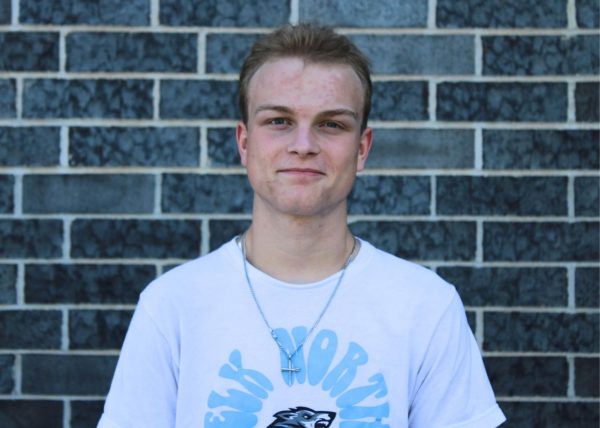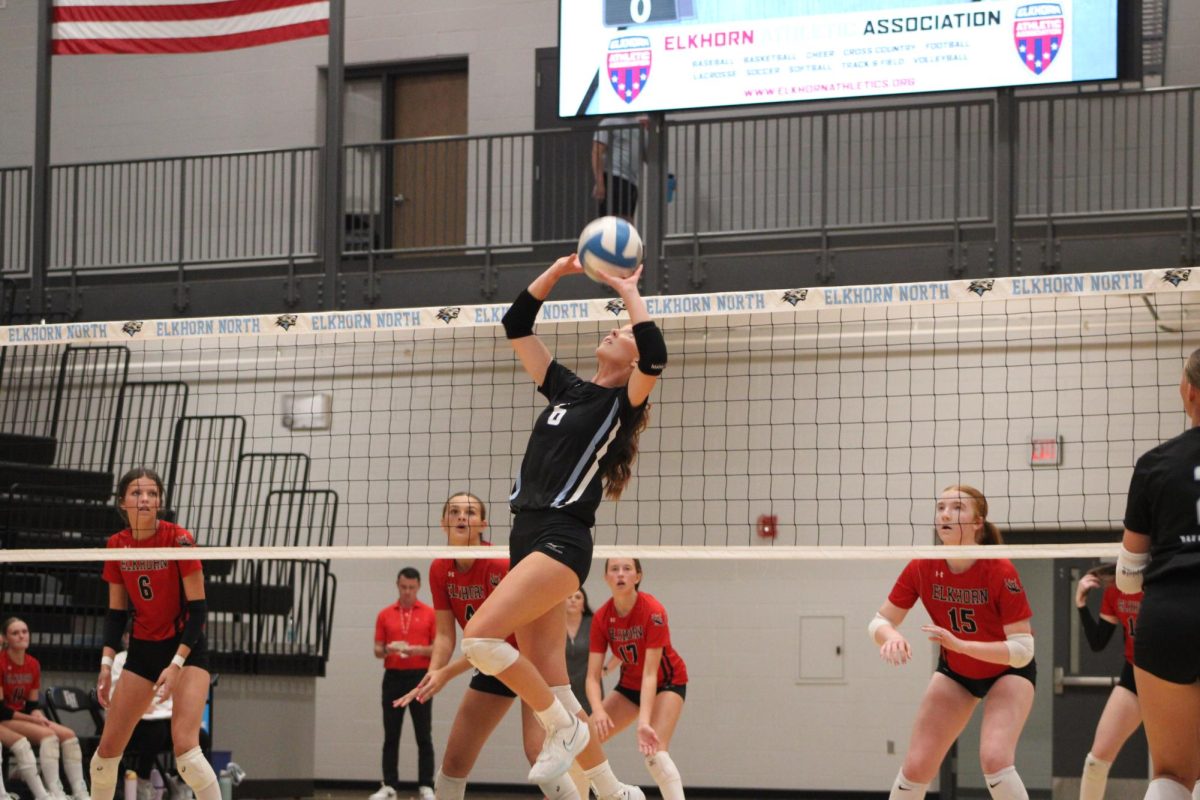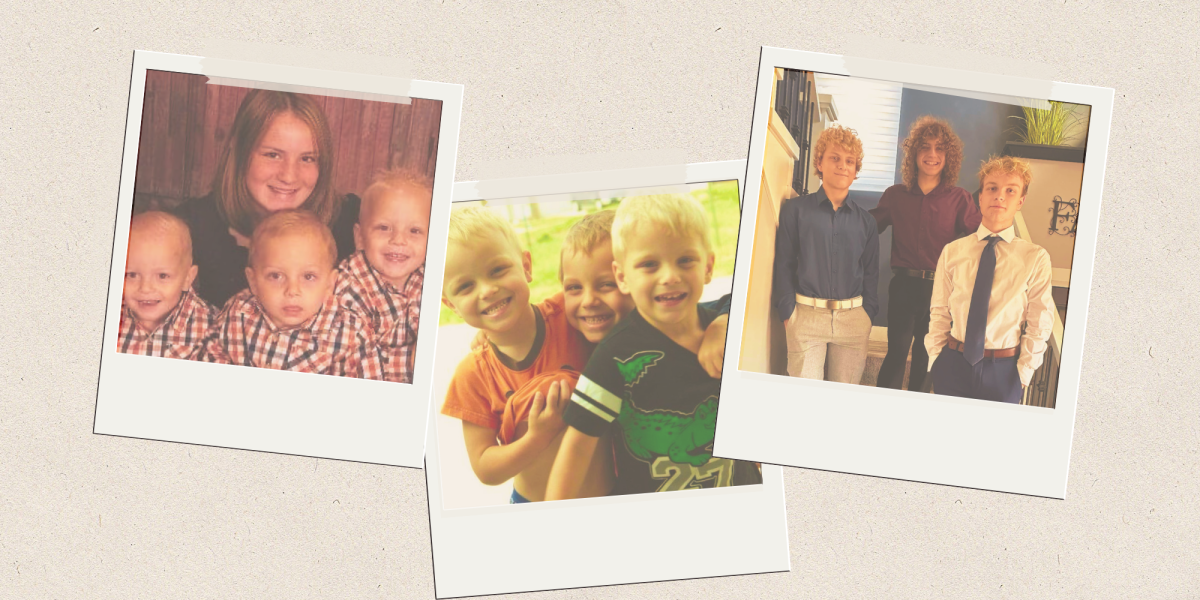When students look at their teachers, they see someone who lives at the school, or at least their life seems to revolve around it, but Social Sciences teacher Ashley Anderson’s life is so much more. She is also a veteran, a mother, and an avid mental health advocate.
As a child, Anderson’s mother was diagnosed as bipolar, but this didn’t stop her from being a normal kid. When she was in high school, Anderson was like any other teenager: she was on the cheer team, played soccer, did dance, and held a job. As a senior, though, she experienced a bad breakup that affected her mental health greatly. Through this experience, without the support system that exists in today’s society, Anderson’s mental health was at a deficit and she struggled greatly.
In the same year, she witnessed the terrorist attacks on September 11, 2001. To Anderson, this was a call begging to be answered.
“I just knew that if I didn’t [enlist], somebody else would have to go,” Anderson said. “There’s going to have to be a lot of people that leave their families and their kids… I just didn’t have any kids yet and I wasn’t close with my family.”
Anderson had to wait to enlist due to previous knee surgeries, so she attended community college until she was cleared. Once she finally joined the military, it changed the course of her life.
“I wouldn’t be who I am today without the military experience I am honored to have,” Anderson said, “I also probably would have never became a teacher.”
While she served in the Army Reserves, Anderson led classes in history and other social sciences to those enlisted pursuing an education. She was on State-Side active duty so that she could remain with her kids, but she also did some pipeline work alongside the Marines in Virginia and North Carolina. Anderson’s experience in the military developed her interest in education and teaching.
“There’s no way I would have thought I’d enjoy being a teacher after my experience in high school,” Anderson said.
Her first encounter with advocating for mental health was a support group she formed while going through Advanced Individual Training in the military. She felt this was necessary because the program isolated the individuals and it was hard for them to cope with the feeling of loneliness and detachment. The group focused on having a support system within the army, and recognized the poor mental health of everyone, to eventually improve the lives of those serving.
“It’s important that we advocate for people to talk about those things and get the help that they need to find better ways to cope than just struggle with it,” Anderson said. “There needs to be support on the front side of it to prevent those things from happening.”
She believes that attacking mental health head-on is the best solution. After her time in the military, Anderson was getting an education at USD to become a teacher, during which she took care of her son Shawn. Eventually, she introduced her daughter Natalie into the world, and the reality of becoming a teacher faded away. She changed her major to become a dental assistant, a career in which she would only take her a year to earn. Feeling comfortable enough financially she made the move to Omaha.
She was hired at a chiropractic clinic and eventually found herself in a good enough position to go back to school to become a teacher. At UNO she took classes in education, history, and psychology. The university board believed that she was too old to become a good teacher, but she pursued the classes regardless.
“I wanted to encourage students… to realize like you’re gonna go through a lot of really hard things in life,” Anderson said. “You can still pursue whatever you want as long as you want to do it and you care about it.”
Anderson was assigned to Elkhorn High School for student teaching while her kids attended school in OPS. She fell in love with the district and wanted her kids to attend EPS as well. It was difficult for Anderson to afford the price of living in the district, but she made it work so they could receive the quality education provided by EPS.
“I have to try harder for straight As,” Anderson’s daughter freshman Keira Hecht said. “I do like having my mom in the same space as me also.”
Anderson has benefited the district during her time here. In the past two years, she succeeded in establishing increased mental health efforts around the school. First, she introduced the Animal Club, whose goal was to work with animals such as dogs or cats and in turn benefit student mental health.
To focus more on the mental health aspect, the Animal Club changed its name to Active Minds, an idea that had been introduced at other schools to identify and improve the mental health of students.
“To perform your best academically, it is important to have positive mental health at the same time,” Dowd said.
Most recently, Anderson became the co-adviser alongside Counselor Martha Dowd of Hope Squad, which is a group of students trained to identify student mental health issues, respond effectively, and report if needed.
“I want them [students] to make connections and have someone to go to,” Anderson said. “I want to see them interact with each other more and keep an open mind about the people they encounter.”









